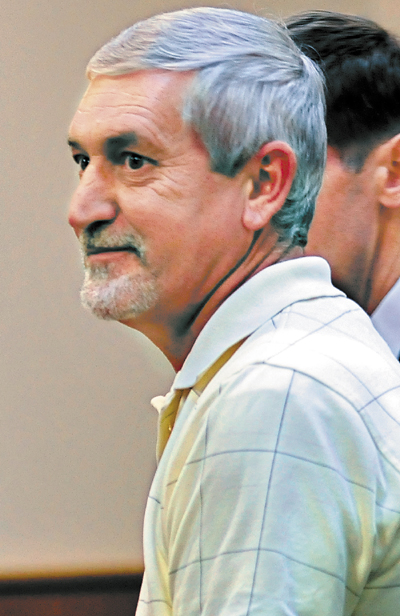There’s no question that the police standoff in Skowhegan last Christmas Eve ended well.
Police responding to a call about a suicidal man found John Emery, then Fairfield’s police chief, armed and distressed, and sitting in his stuck vehicle off Notch Road. The officers, some of whom knew Emery well, gave him space. Ultimately, he was tackled, stunned and taken into custody, before he could do harm to himself or someone else.
That’s the way it should happen, more often than not.
Secrecy and slow movement, however, have marked the case since the end of the incident. That leaves questions unanswered and rightly raises the concern that Emery, who ultimately was charged only with operating under the influence, was treated differently because of his status as police chief.
Reviewing the events of Dec. 24 and subsequent actions by law enforcement, it’s easy to wonder what would have happened if the incident was caused by someone unknown to police.
On that afternoon, after finding Emery’s truck miles from his home, police set up a perimeter but kept some distance. When officers tried to talk with Emery, he was confused and slurring his words. At one point, Emery fired a shot, though where he was aiming is not clear.
After an hour or so, Emery left his truck and began walking toward the officers. He held the grip of his pistol, which was tucked in his pocket. As he approached a police vehicle, he did not comply with the officers’ order to raise his hands. When Emery got close enough, officers tackled him, using a stun gun to force Emery to release his weapon.
That sequence of events, revealed in police reports obtained by the newspaper, suggests that further charges, such as reckless conduct with a firearm or causing an armed standoff with police, might be appropriate.
If there are good reasons why those charges weren’t brought, officials aren’t saying. Deputy Attorney General William Stokes, who supervised the case after District Attorney Maeghan Maloney recused herself, said he would talk only about the OUI charge.
The OUI charge did not come until May 6 — more than five months after the incident — when Emery was issued a summons. Stokes said he handed his recommendations to Maloney on Feb. 13 and they were forwarded to the assistant district attorney working the case.
Stokes attributed the delay in charging Emery to the fact Maloney had just taken office in January and her staff was just getting acclimated. But that doesn’t sufficiently explain why the case languished for so long.
And while prosecutors were deciding on charges, police were keeping quiet, a stance officers took from the beginning.
The Emery incident, which involved more than a dozen officers from three departments, warranted only a short entry in the daily log noting a report of a “mental subject,” a police radio term for someone acting irrationally. After the standoff, police refused to answer questions about the incident or release police reports, citing the ongoing investigation.
The reports were released to the paper only recently following a Freedom of Access request.
Many of the actions taken since Emery was tackled by police warrant more explanation. Most standoffs end with an arrest, multiple charges and a press release explaining the details.
There may be good reasons why this one didn’t, but we haven’t heard them.
Of course, the one good thing about this incident is that Emery is alive. According to the police reports, he left his house that day intent on instigating a confrontation that would end in his death. Many standoffs that start this way end in a police shooting.
At the scene, however, officers were careful not escalate the situation, even as Emery approached them with his hand on his pocketed gun. They chose to tackle him when he did not stop as commanded.
If the officers had not known Emery, would the incident have ended differently? Is there anything to learn from this case that would help officers end other standoffs peacefully?
Because the question, in this case, is not, why wasn’t Emery treated like all other standoff subjects. It’s why aren’t more standoff subjects treated like Emery.
Send questions/comments to the editors.



Success. Please wait for the page to reload. If the page does not reload within 5 seconds, please refresh the page.
Enter your email and password to access comments.
Hi, to comment on stories you must . This profile is in addition to your subscription and website login.
Already have a commenting profile? .
Invalid username/password.
Please check your email to confirm and complete your registration.
Only subscribers are eligible to post comments. Please subscribe or login first for digital access. Here’s why.
Use the form below to reset your password. When you've submitted your account email, we will send an email with a reset code.